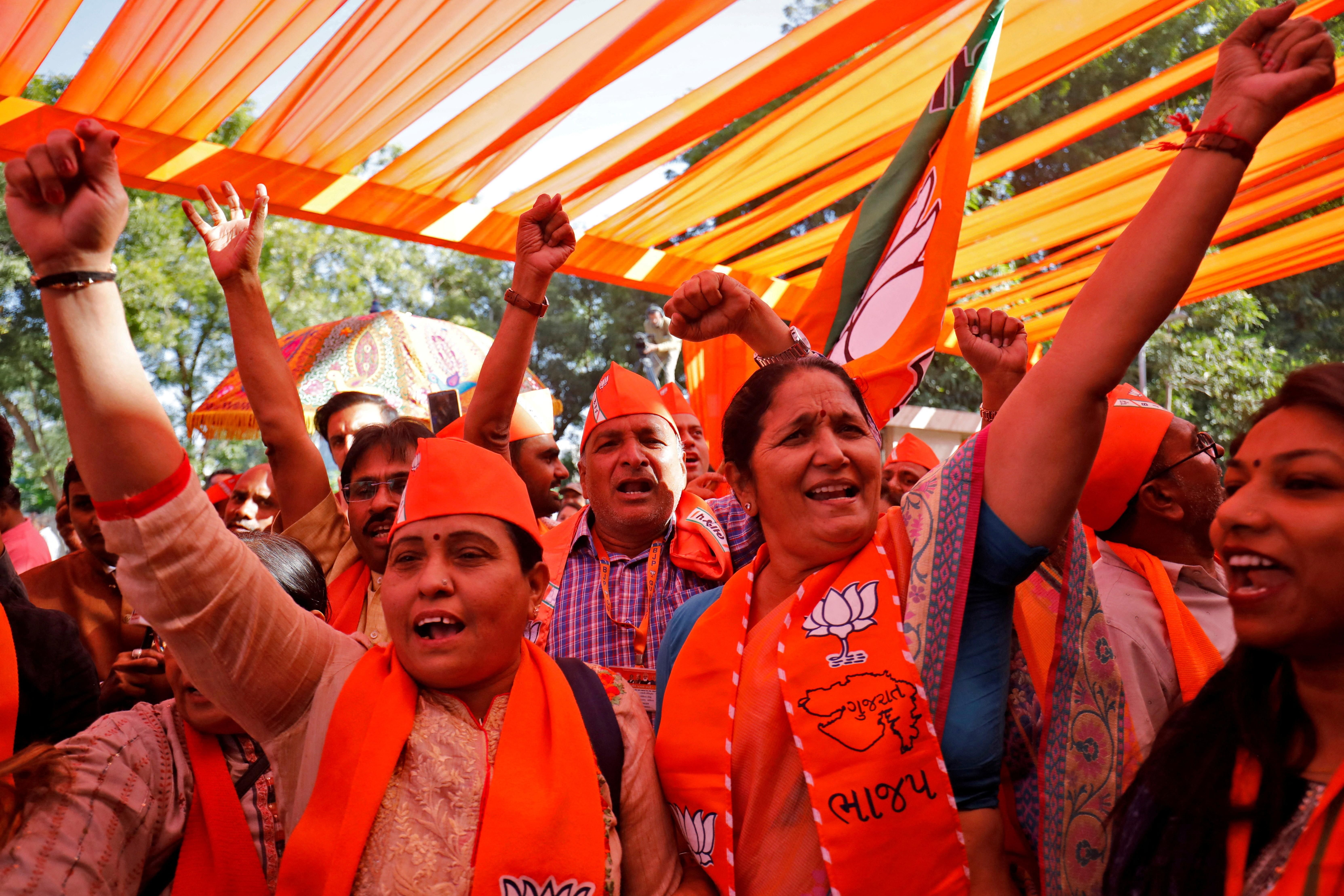India’s general election kick-off
Two state elections in India have delivered mixed results for Prime Minister Narendra Modi, who pulled out all the stops to bolster his party in what’s widely seen as a kickoff to the 2024 general election. In the PM’s home state of Gujarat – where Modi served as the top elected official for 13 years – his Hindu nationalist Bharatiya Janata Party deepened its grip on the state, reaping more than 85% of seats in the state assembly. (Modi is accused of turning a blind eye to brutal inter-ethnic riots there in 2002 that led to more than 1,000 deaths, mostly Muslims killed by Hindu vigilantes.) Meanwhile, in northern Himachal Pradesh, the incumbent BJP lost to the main opposition National Congress Party, which has struggled on the national stage in recent years. What’s more, despite a big push to maintain its 15-year grip on the city of Delhi, Modi’s party also lost a key election in the capital to the Aam Admi Party, established in 2012 on an anti-corruption platform. Still, with these races kicking off the country’s run-up to 2024, Modi is clearly the dominant political force in India: He has a staggeringly high approval rating of 77% and has overseen a booming economy that’s on track to become the world’s third largest by 2030.
Marriage finally gets some respect in the US
Same-sex and interracial couples in the US no longer need to worry about the government — or the courts — breaking up their marriages. On Thursday, the US House in a 258-169 vote passed the Respect for Marriage Act, which mandates federal recognition for those unions. Thirty-nine Republicans joined the entire Democratic caucus in supporting the bill, which includes an amendment permitting religious organizations to refuse services to marriages they don’t agree with. That amendment was added in the Senate last month in order to address Republican concerns about religious freedom. The bill requires states to recognize same-sex marriage licenses issued legally in other states, but it allows states to refuse to issue same-sex marriage licenses of their own. The Supreme Court’s controversial decision to overturn Roe v. Wade earlier this year raised fears that the conservative-dominated bench might move to overturn similar privacy-based rights to interracial or same-sex marriage as well. This bill, which now heads to President Joe Biden’s desk for a signature, makes that impossible.
Iran sends message by hanging protester
In yet another sign that the Islamic Republic of Iran is not serious about reform, the regime on Thursday conducted the first known execution of a person for participating in nationwide protests that have brought the country to a standstill for almost three months. After a sham trial, Mohsen Shekari, 23, was sentenced to death for allegedly blocking a road in Tehran back in September and attacking a member of the Basij paramilitary – a ruthless volunteer force that operates under the draconian Islamic Revolutionary Guards Corps – with a machete. Shekari was convicted of “waging war against God,” which carries the death penalty in Iran. While it is impossible to know exactly how many Iranians have been arrested since the in-custody death of Mahsa Amini sparked the demonstrations, that number is believed to be well into the thousands. Some analysts say that while the regime has been trying to show restraint (by its standards) in responding to the ongoing protests, this development is a sign that Supreme Leader Ayatollah Ali Khamenei is now willing to take off the gloves completely to scare protesters into submission. But are the gray-bearded mullahs underestimating the dogged determination of Iranian women? TIME sure seems to think so.
More For You
America’s new National Security Strategy confirms what Europeans have feared for months: Washington now sees a strong, unified European Union as a problem to be solved, not an ally to be supported.
Most Popular
The power of sports
What’s Good Wednesdays™, December 10, 2025
Walmart's $350 billion commitment to American jobs
In this episode of Tools and Weapons, Microsoft Vice Chair and President Brad Smith sits down with Ed Policy, President and CEO of the Green Bay Packers, to discuss how purpose-driven leadership and innovation are shaping the future of one of the world’s most iconic sports franchises. Ed shares how technology and community-focused initiatives, from Titletown Tech to health and safety innovations on the field, are transforming not just the game of football, but the economy and culture of Green Bay itself. He explains how combining strategic vision with investment in local startups is keeping talent in the Midwest and creating opportunities that extend far beyond Lambeau Field.
Subscribe and find new episodes monthly, wherever you listen to podcasts.
More than a week after Hondurans cast their ballots in a presidential election, the country is still stuck in a potentially-dangerous post-election fog.
